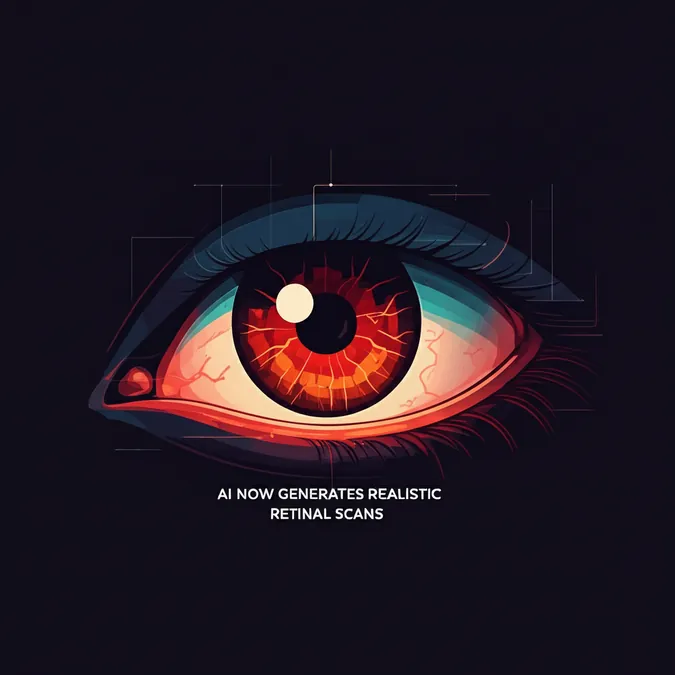Developer Offer
Try ImaginePro API with 50 Free Credits
Build and ship AI-powered visuals with Midjourney, Flux, and more — free credits refresh every month.
Raanjhanaa AI Ending Sparks Creative Rights Battle
A Classic Film's Controversial New Climax
The beloved 2013 film Raanjhanaa, an unrequited romance drama, is stirring controversy over a decade after its initial release. The film is being re-released in Tamil Nadu, where it was originally titled Ambikapathy, but with a significant alteration: its tragic ending has been replaced with a "happy" one generated by artificial intelligence. This move, potentially a first for the industry, has created a deep rift between the film's director, Aanand L Rai, and its producer, Eros Media World.
Originally, the film, starring Tamil superstar Dhanush and Sonam Kapoor, concluded with the death of the lead character. However, Upswing Entertainment, collaborating with Eros for the re-release, announced, "The timeless love story returns to the big screen! #Ambikapathy re-releasing in theatres from August 1st... A new ending powered by AI."
Director's Outcry: A "Dystopian Experiment"
Director Aanand L Rai expressed profound disappointment and dismay over the change, which he learned about without any prior discussion. In a statement, he called the alteration a "reckless and dystopian experiment" from which he must dissociate himself.
“I’m heartbroken that this is the future we’re heading toward, where intent and authorship are disposable,” Rai stated. He argued that Raanjhanaa became a cult classic precisely because audiences connected with its honest, flawed, and imperfect narrative. “To see its ending altered without a word of discussion is a gross violation not just of the film, but of the trust of the fans who’ve carried the film in their hearts for 12 years,” he added.
Producer's Defense: A "Creative Reimagining"
Eros Media World defended its decision, framing it not as a replacement but as a "creative reimagining." Pradeep Dwivedi, the company's Group CEO, explained that the move is part of a broader strategy to reintroduce classic films to new audiences in regional markets, comparing it to common industry practices like anniversary editions and alternate cuts.
"We categorically reject Mr. Rai’s allegations, which are not only factually incorrect but also legally unfounded," Dwivedi said. Eros insists the re-release is a respectful reinterpretation, clearly labeled as an AI-enhanced alternate version. The company asserts its legal position, stating that under Indian law, the producer of a cinematographic work is its legal author, holding both moral and copyright, not the director.
The Legal and Ethical Battleground
The conflict highlights a critical debate over creative control versus legal ownership. Rai argues that altering the film opens a "dangerous door," raising urgent questions about the moral rights of creators. He expressed particular concern over the digital manipulation of an actor's performance years after the fact.
“How can they digitally manipulate an actor’s input almost a decade after a film’s release? This strips away their agency, and raise serious concerns under personality and image rights,” Rai questioned. He warned that if this action goes unchallenged, it could set a precedent for anyone to "update" any artistic legacy for short-term profit.
Eros responded by reiterating that it holds the sole and exclusive copyright and producer rights, including legal and moral rights. The company claims to have acknowledged Rai's concerns respectfully while maintaining its legal position and creative intent.
The Future of Film in the Age of AI
While this debate rages, Rai is already moving forward, working on a follow-up to Raanjhanaa with Dhanush titled Tere Ishq Mein. This new project, also starring Kriti Sanon, is set for a worldwide release. The controversy surrounding the Raanjhanaa re-release, however, continues to cast a long shadow, forcing the industry to confront the complex implications of using AI to alter established artistic works.
Read more about the upcoming film: Kriti Sanon starts shooting for ‘Tere Ishk Mein’ co-starring Dhanush.
Compare Plans & Pricing
Find the plan that matches your workload and unlock full access to ImaginePro.
| Plan | Price | Highlights |
|---|---|---|
| Standard | $8 / month |
|
| Premium | $20 / month |
|
Need custom terms? Talk to us to tailor credits, rate limits, or deployment options.
View All Pricing Details

